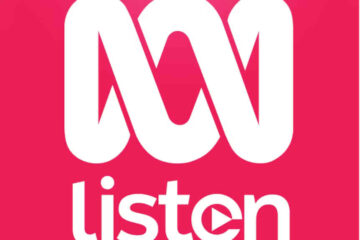Gershon Baskin thinks that the Labor government has been quietly preparing for talks on Jerusalem to begin in May on all final status issues, including the future of Jerusalem.
A Jerusalem-based think tank has completed a confidential report analysing various solutions to the dispute over the holy city and find a way to split the city between the two peoples who claim it as their eternal capital.
“They have a whole series of ideas,” said Israeli analyst Gershon Baskin, who was not directly involved with the study but is familiar with those involved. “They’ve prepared a book with a series of maps.”
The government is reluctant to give details, but informed sources confirm that the report was commissioned by the Israeli foreign ministry and conducted by the Jerusalem Institute for Israel Studies. It has also been sent to the Palestinian side.
The ‘book’ details many possible scenarios for Jerusalem, all proposing different levels of shared sovereignty between Arab and Jew. Some scenarios give Palestinians sovereignty over the Arab parts of East Jerusalem while Israel maintains control over Jewish settlements in the eastern half.
Other ideas allow a Palestinian police force into the city, possibly supervising Muslim and Christian holy sites within the Old City, home to the golden Dome of the Rock and the Church of the Holy Sepulchre.
Still others call for reconfiguring the present borders of the city to allow for most Jewish settlements to be annexed to Israel, while allowing Palestinians control over their own neighborhoods and free access to the city.
Rumors of academic work involving solutions to Jerusalem are not new. Most universities and several think tanks have been drawing up possible solutions for years.
And months ago, reports circulated that Palestinians were planning to make Abu Dis, an Arab suburb of Jerusalem currently outside the Israeli-imposed municipal boundaries, the seat of its new government.
But the revelation that the foreign ministry commissioned the work has added to the problems of a weary Labor-led government, which is still reeling from recent bombings and sagging in the polls.
Israeli Prime Minister Shimon Peres came under fresh attack from the opposition Likud party following news of the government- commission analysis. On the defensive, a shaken Peres said that his government’s position on Jerusalem had not changed.
“All reports of plans to divide Jerusalem are false,” Peres told 50 mayors from around the world who had come to Jerusalem for an international mayors’ conference this week. “There is no intention to divide the city.”
“I want to stress that Jerusalem is not just united, but it also unites us all,” he further reiterated during a later visit to Tel Nof airbase. “We are all united in a clear decision to keep Jerusalem as a united city, as the capital of Israel and not the capital of two states. I do not see that there will be any changes in those positions of ours.”
Likud leader Binyamin Netanyahu countered that reports of a government commissioned analysis on ways to share sovereignty with the Palestinians proved that Labor was prepared to split the city in some way.
With Israeli elections less than three months away, the leak of the analysis may hurt Peres. Though Israelis and Palestinians have agreed to discuss the disputed city under the Oslo process, most Israeli voters revere the Old City’s Western Wall, which is in the eastern half, as the holiest site in Judaism.
Labor’s official stand, repeated by both the late Prime Minister Yitzhak Rabin and now by Peres, is that Jerusalem will remain the undivided capital of Israel. Palestinians, however, want the eastern half that was captured from Jordan in 1967 to become the capital of the state they hope to create in the West Bank and Gaza.
Meanwhile, according to Baskin and other analysts, the Labor government has been quietly preparing for talks on Jerusalem to begin in May on all final status issues, including the future of Jerusalem.
“All they’ve doing right now is their homework for the negotiations,” said Baskin. “No political decisions have been made and none will be made until after elections.”
Jerusalem is the most sensitive — and complicated — issue facing Israelis and Palestinians. Since Israel captured the eastern half in 1967, it has built Jewish settlements around Arab neighborhoods, effectively encircling the Palestinian population and making shared sovereignty or redivision difficult.
Pockets of Jewish-only neighbourhoods are interspersed among Palestinian neighborhoods, while a huge settlement, called Maale Adumim, towers on hilltops seven kilometers east of Arab East Jerusalem.
Negotiators will have to deal with the mixed populations, questions of municipal or national sovereignty, borders, police, and even mundane issues like sewage, lights and building permits.
Palestinian analyst Khalil Tufakji, who has been working on various solutions to the city independently or in conjunction with other Palestinians, favours creating a solution similar to London.
The British capital has no overall city authority, but is run instead by 32 separate municipalities with individually elected councils, each with the same specific urban responsibilities — schools, drains, planning, etc. — but each pick different policies to run them and set different levels of local tax.
Each Israeli and Palestinian neighborhood could be declared separate ‘municipalities’ while the borders of the city to the east would be expanded to include about ten Palestinian villages that are currently technically left outside the city, but considered by Palestinians to be suburbs of Jerusalem.
But Tufakji emphasises that all solutions — including those prepared by the Jerusalem Institute for the foreign ministry — have not left the realm of academia. He says that some 600 solutions, each offering minor changes that revolve around some five or six general central themes, have been produced.
But he also adds that they all share a common theme that will not enthrall the Israeli right. “We have many scenarios, many of the same ideas,” says Tufakji. “All revolve around the broad concept of sharing the city without building walls.”


